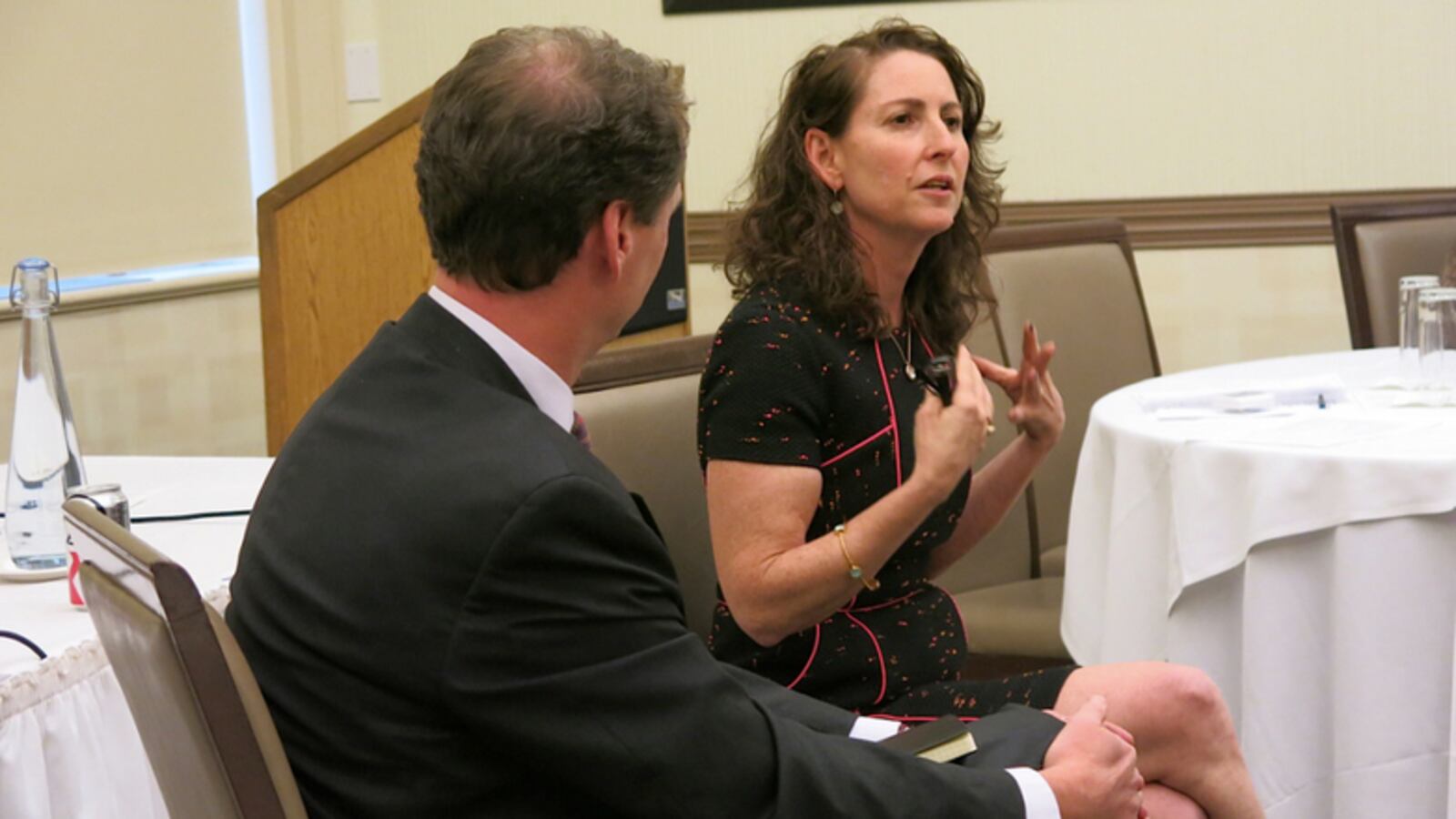Eva Moskowitz earned rare praise from the de Blasio administration on Tuesday after she invited city principals to a training day sponsored by her charter school network next month.
Moskowitz, who founded Success Academy Charter Schools in 2006, is offering to host classroom visits and professional development sessions on Oct. 30 for leaders of the city’s district elementary schools. She’s even emailed Chancellor Carmen Fariña and other top education officials directly to help get the word out.
“This is great to see,” said Devora Kaye, a spokesperson for Fariña, in response to the announcement.
The offer to share resources and details about Success’ curriculum, management, and programs aligns with what Mayor Bill de Blasio and Fariña have said they want from the city’s charter schools. Fariña in particular has encouraged teachers and principals to visit each other’s schools in a structured way, saying the practice is a key driver of improvement.
“We celebrate when schools answer the chancellor’s call for greater collaboration,” Kaye said.
The praise is notable given de Blasio’s frosty relationship with Moskowitz, a political rival with mayoral ambitions and starkly different ideas about how to improve public education. And it’s unclear if Fariña intends to help market the event to district principals. Only five months ago, Moskowitz helped organize attack ads against the mayor after he blocked three of her schools from co-locating in district school buildings.
For those who want charter schools to serve as laboratories of new ideas and then to share them with district schools—a central premise of the charter movement when city teachers union president Albert Shanker first embraced it in 1988—the development was seen as a “good first step.”
“But it’s only a first step,” said David Bloomfield, a professor of educational leadership at Brooklyn College. “My hope would be that this initiates an ongoing collaboration of Success and other charters” and district schools, he said.
Success, the city’s largest charter school network, is currently applying to expand from 32 to 46 schools over the next two years. The schools are in high demand from parents and rank as or among the city’s top-performing schools each year on state tests.
Success schools last year attracted 300 visitors from people who wanted to know more about the network’s which opened with its first school in 2006, Success spokesperson Ann Powell said.
But the schools are also controversial among teachers and principals who work in district schools, who argue that the charter sector’s growth hurts the traditional public school system, which loses resources as more students attend charter schools. Teachers and education activists have been airing their criticisms of Success by circulating petitions against Success’ application to expand and at public hearings where the applications are being reviewed.
The October training event is open to 60 people, and that a few principals have already signed up, Powell said, and the network has focused its outreach on schools co-located with Success Academy schools.
The event will include classroom observations in the morning focused on the network’s “Think Literacy” curriculum and approach to math instruction, followed by meetings in the afternoon at Columbia University. Moskowitz will moderate an afternoon session called “The Essential Role of the Principal” to “discuss the critical role of the principals as an instructional leader,” according to an outline of the day that Success posted online for those who are interested in registering.
Last year, Success held a similar event mostly for other charter school leaders, including KIPP’s Dave Levin, Achievement First’s Dacia Toll, and Uncommon’s Schools’ Brett Pieser. A group of educators from the Houston Independent School District also attended.

